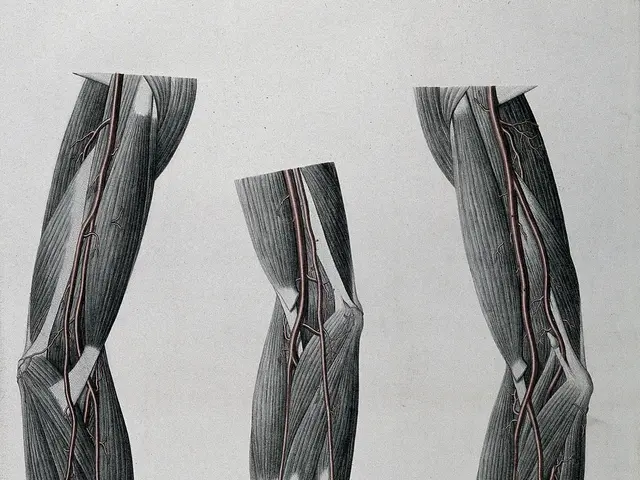As a public employee, your health is safeguarded by law in case of illness.
Mecklenburg-Vorpommern to Introduce Flat-Rate Subsidy for Civil Servants' Healthcare
Mecklenburg-Vorpommern, a federal state in Germany, is set to introduce a flat-rate subsidy for civil servants' healthcare based on the model already in place in Hamburg. The move aims to provide more justice and freedom of choice in healthcare insurance for civil servants, as well as boost the attractiveness of the public service in the region.
Until now, civil servants in Mecklenburg-Vorpommern received between 50 and 80 percent of their health and sickness insurance costs from their employer, with the rest covered by a private health insurance policy. However, under the new flat-rate subsidy system, the state government will provide a fixed amount per civil servant regardless of actual expenses.
The flat-rate subsidy is expected to bring cost predictability and budgeting ease for the state government, as well as simplify claims processing compared to reimbursements of actual costs. For civil servants, the financial impact will depend on whether the flat-rate covers their average medical expenses fully or not. There may also be social equity concerns if the flat subsidy does not adjust adequately for individual needs or inflation.
The German Trade Union Confederation (DGB) Nord considers the planned regulation as an "important and overdue step." DGB Nord's chairwoman, Laura Poth, expects high demand for the flat-rate subsidy among new teaching staff, technical professions, and lower salary groups. The SPD and Left Party had agreed on this plan in their coalition agreement.
Consumer advocates recommend individual consideration for the choice of health insurance under the new flat-rate subsidy system. The Hamburg Consumer Center suggests that the flat-rate subsidy in combination with statutory health insurance may be a good choice for civil servants in lower salary groups, part-time positions, those with multiple children, late appointments, or recent serious illnesses.
Several other federal states, including Baden-Württemberg, Berlin, Brandenburg, Bremen, Lower Saxony, Saxony, Thuringia, and Schleswig-Holstein, have already implemented a similar flat-rate subsidy model. The actual impact of these policies varies depending on the generosity of the flat rate relative to healthcare costs in the region and the demographic profile of civil servants.
Unfortunately, specific data or analyses comparing Mecklenburg-Vorpommern’s scheme with other states are not readily available. For accurate, up-to-date impacts and state-to-state comparisons, consulting official Mecklenburg-Vorpommern government releases or specialized studies on civil servants' health insurance subsidies in Germany would be necessary.
More than 1,000 civil servants and pensioners in Mecklenburg-Vorpommern have already voluntarily insured themselves with statutory health insurance, according to DGB Nord. The flat-rate subsidy, scheduled to be implemented on August 1, 2026, subject to state parliament approval, is aimed at alleviating this unnecessary burden for the employees.
Finance Minister Heiko Geue (SPD) emphasized the importance of the flat-rate subsidy to prevent financial disadvantages for civil servants choosing statutory health insurance. DGB Nord views the flat-rate subsidy as a means to boost the attractiveness of the public service in Mecklenburg-Vorpommern.
- Initiatives in health-and-wellness and workplace-wellness could see a boost due to the flat-rate subsidy's potential to make statutory health insurance more attractive to civil servants.
- With the new policy-and-legislation on a flat-rate subsidy, Mecklenburg-Vorpommern aims to promote fitness-and-exercise and nutrition habits among civil servants by making health insurance more accessible.
- The introduction of the flat-rate subsidy in Mecklenburg-Vorpommern's Medicaire system may spur discussions on general-news platforms regarding the role of politics in shaping science-backed policy for health care.
- The flat-rate subsidy system in Mecklenburg-Vorpommern could serve as a case study for other regions to consider and evaluate the impact of the policy-and-legislation on health-and-wellness, especially in terms of cost predictability and budgeting ease.
- The DGB Nord chairwoman, Laura Poth, suggests that civil servants in lower salary groups may find the combination of the flat-rate subsidy and statutory health insurance as a viable option for better nutrition, fitness, and exercise, thus enhancing their overall health-and-wellness.







